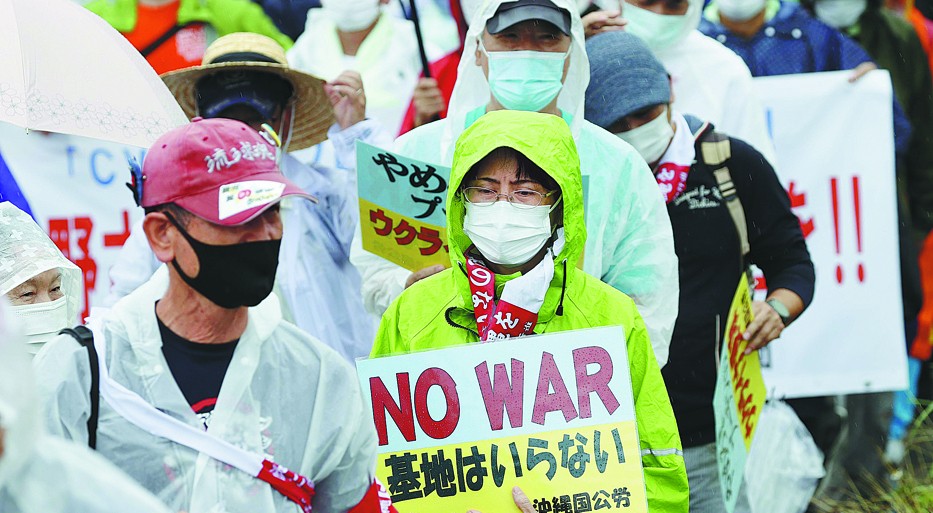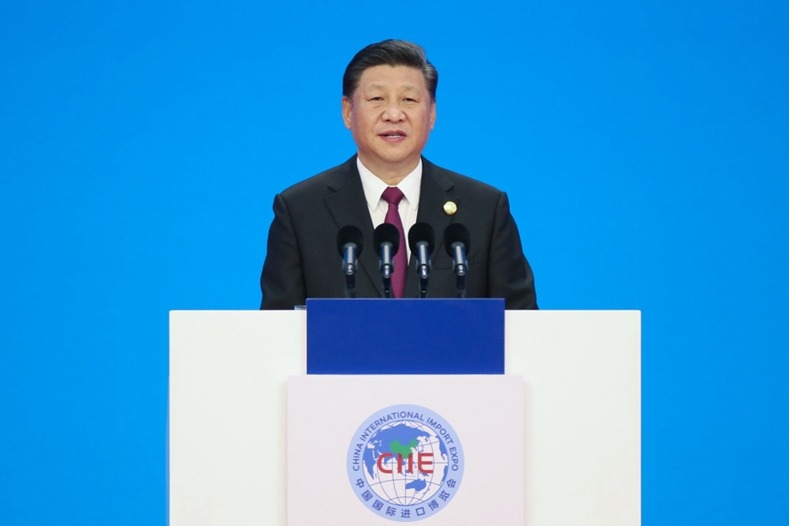US military bases: the lingering shadow over the world
By Xin Ping | chinadaily.com.cn | Updated: 2023-07-14 10:48

"We were forced to fight for a long time, hoping that people would understand our situation." Under the hot sun, dozens of residents on the Japanese island of Okinawa held signs expressing their anger at the United States military base there. Every day there is a large number of military aircraft training at the US military base in Okinawa. To the local people, the loud noise generated by various military equipment is not only unbearable but also causing health problems such as sleep disorder. However, the US authorities do not seem to care about what local people think. Actually they don't need to, since the US forces in Japan are not subject to Japanese jurisdiction. Local people's concerns are all in vain.
Protests by local Japanese have been going on for more than a decade. Over the years, American soldiers based on this island have committed countless crimes. According to the statistics of the Okinawa police, from 1972 to 2020, US soldiers committed 6,000 crimes in the local area, and one in 10 was serious. A series of sexual assaults by US soldiers in Japan in 2016 sparked widespread outrage among local people. But the journey to upholding justice and punishing the criminals is too long to embark on: the complex litigation process often makes victimized local women swallow their pride. According to survey results, the prosecution rate of crimes committed by US soldiers in Japan is less than 20 percent. Even if the victims won the case, their compensation will be mostly borne by the Japanese government, and the US authorities will do little.
According to statistics by the Quincy Institute for Responsible Statecraft, a US-based think tank, the US has 750 overseas military bases in 80 countries, which host a large number of US troops all year round, costing more than $55 billion a year. Not long ago, the New York Times published an article titled "A Brutal Sex Trade for American Soldiers" that exposed the suffering of Korean women at US military bases in Korea: in the 1980s, with the connivance and even assistance of the South Korean government, about 19,000 South Korean women were sexually exploited by the US troops in its host country and many of the victims still live with memories of fear and humiliation.
The US bases abroad are not just a pain for local residents but also a political problem for the host countries. What comes with the US military bases is not peace and security, but clouds of war and endless fear. Over the decades, the US has continued to wage military strikes and even wars of aggression from its overseas military bases against other sovereign countries with different political views. From Latin America to the Middle East, from East Asia to Eastern Europe, with the help of its global military bases, the US was behind almost every major military conflict since the Second World War.
Earlier this year, the Pentagon announced a deal with the Philippines that it will add four more military bases in this country. Some worried that this marks a return to the 1980s, when the Philippines was home to 15,000 US troops and two of the largest American military bases in Asia. "We have a long history of inequality in our relationship," said Renato Reyes, secretary-general of New Patriotic Alliance. "The Philippines has been forced to shoulder the social costs. There's a history of rape, child abuse, and of toxic waste." The US action was also criticized for escalating regional tension and undermining regional peace and stability in the Asia-Pacific.
The worldwide military bases of the United States have not made the world or even the US any safer. The US needs to stop finding excuses to further expand its military hegemony and drag the world into more conflicts. The biggest threat to world peace and stability is none other than the US itself.
The author is a commentator on internationals affairs, writing regularly for Xinhua News, Global Times, China Daily, CGTN etc. He can be reached at xinping604@gmail.com.
The opinions expressed here are those of the writer and do not necessarily represent the views of China Daily and China Daily website.
If you have a specific expertise, or would like to share your thought about our stories, then send us your writings at opinion@chinadaily.com.cn, and comment@chinadaily.com.cn.
























